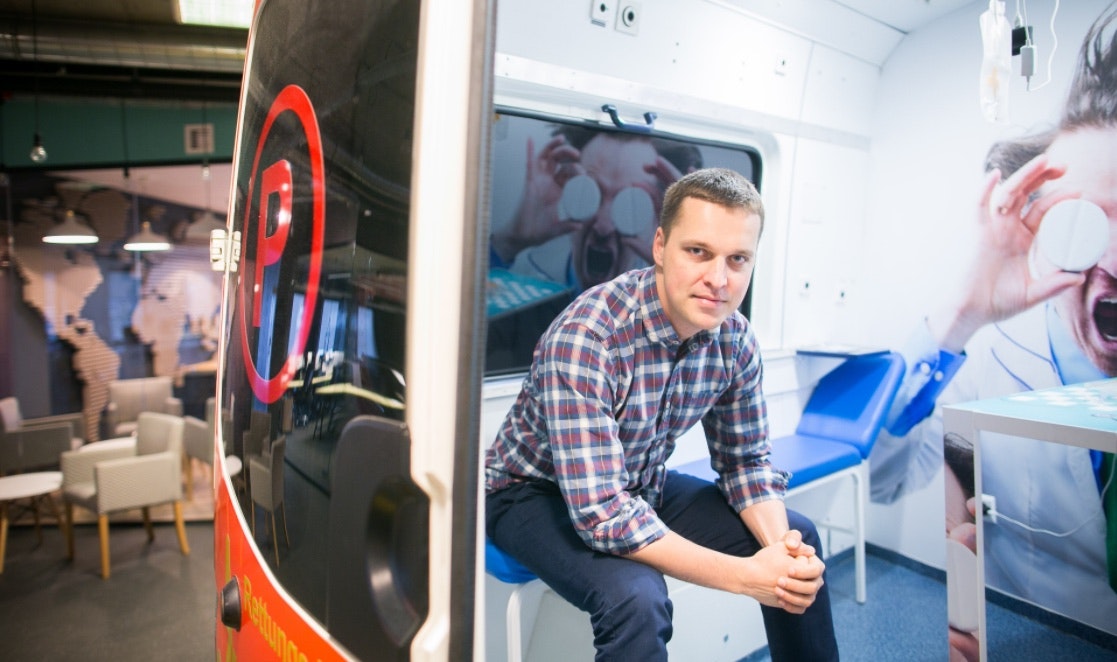Polish healthcare platform DocPlanner is buying its German counterpart Jameda, making a big move into Europe’s largest healthtech market.
The deal was for an undisclosed sum, but DocPlanner says that it will invest €250m in the German market over the next 2-3 years and hire another 200 employees at Jameda (which today has 250).
“It’s the biggest bet for DocPlanner so far,” says founder Mariusz Gralewski.
The deal follows DocPlanner’s latest funding round in August, which valued the company at more than $1bn. Over the past two years, Docplanner has doubled its number of employees to 2,000 and now serves nearly 70m monthly patients.
Docplanner, however, will face competition in its latest move into the German market.
Its biggest counterpart, French Doctolib, already has 450 people based in Germany. And there are others as well all ready to fight for market share, according to Christian Weiss, a general partner at Berlin-based Heal Capital, focused on healthtech.
“Many of these startups are loaded with cash and able to enter the market by acquisitions. We’ve seen German startups being around for about ten years and are now being acquired,” says Weiss.
And it’s not just in Germany that we see a consolidation of healthtech startups. Other startups on acquisition sprees this year include Kry (Livi), Zava and HealthHero.
“Doctolib and DocPlanner are some of the biggest fish in the pond and they can probably crack the code to the German market. There is no point in waiting any longer before entering,” Weiss continues.
To buy or not to buy
Gralewski said that the DocPlanner team had time and time again discussed entering the German market by themselves but ultimately decided against it.
“It would take us three to four years to build a sizeable business there and then, maybe it would work or not. And so, we have been saying no just to keep operations as simple as possible. ”
But by already knowing Jameda chief executive Florian Weiss, the two founders had already helped each other out to the point when the companies were looking more and more alike.
“I was drinking wine one evening and thinking [of Jameda], hmm, they are really becoming like a DocPlanner in Germany," Gralewski says. "And it's kind of funny, so maybe we should do something together because then we wouldn't have this issue. And we would just move into the German market and automatically we will have a kind of company and a reach.”
Making friends
This is not the first time Gralewski uses his friend-making skills to grow the business. When Sifted reaches him, he is in Barcelona where DocPlanner’s 2016 acquisition Doctoralia is based.
“We always make friends before we do the business. Our VP of product told me recently that the reason why we are so efficient in making acquisitions around the world is probably because that we are just nice people.” Gralewski says jokingly.
“But I think there is a lot of truth in that. If you see the size of the company at this point, the level of empathy that we still have, I think it's pretty unique.”
And DocPlanner is doing something right. Its acquisition of Doctoralia opened the door for Spain but also Mexico, Brazil, Peru and a number of other countries in the region. With Jameda and a quarter of a billion to spend, a lot can be done in Germany, and especially for doctors' working conditions, according to Gralewski.
“The quality of the healthcare is high in Germany. But the level of complexity and amount of work on doctors’ shoulders is super heavy. So basically, what we are trying to do is to create a digital infrastructure for all the doctors working in the healthcare segment so we can really improve their lives.”
Digital Germany
Since late 2019, Germany is steadily moving towards a more digitally native healthcare system. Since a new healthcare act two years ago, startups are able to tap into a market with more than 83m potential users.
However, what stands between the patients and the healthtech apps are the doctors. By easing the doctors' work with a healthcare platform, other startups can be aided by DocPlanners entry on the market, even telehealth startups, according to Gralewski.
“I don't perceive them as a competition. On top of our digital infrastructure, we are building an app store that we are testing now. We already have 25 applications, but it will be directed into delivering the innovation to the healthcare market and among doctors,” says Gralewski.
“If startups have this opportunity to automatically connect to all the doctors in one of the countries that we are in, that I think is really interesting.”

